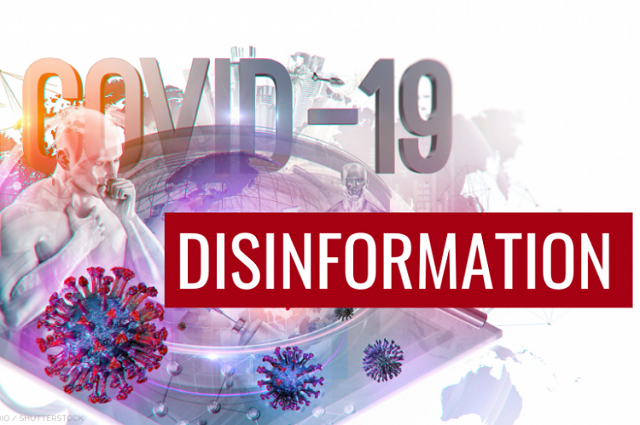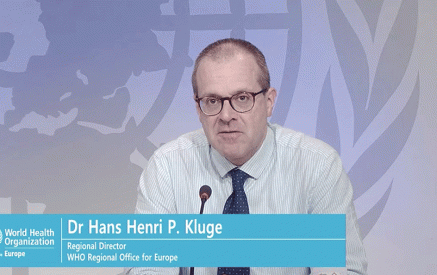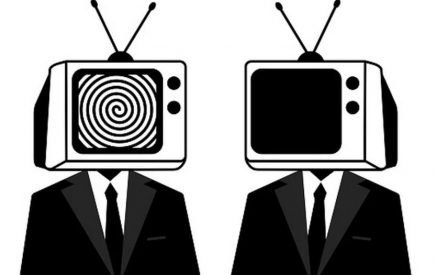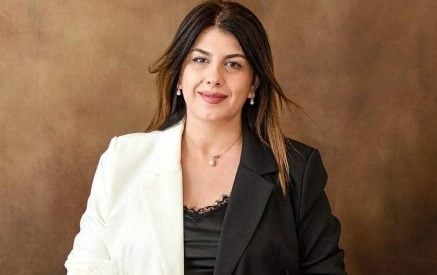SUMMARY
- In line with the previous EEAS Special Reports and based on publicly available information, this edition gives an overview of recent developments around COVID-19 related disinformation. The report focusses on foreign state and non-state actors trying to exploit the uncertainty in societies as well as people’s fears and insecurities to advance their own agenda.
- While misinformation and disinformation[1] relating to issues surrounding the COVID-19 pandemic have continued to spread across the globe, the volume has – according to our findings – shown at least a temporary decrease during the period observed, alongside a general downward trend on COVID-19 related web searches[2].
- There is a crystallizing and clustering around specific topics and narratives: alleged links between COVID-19 and 5G networks; COVID-19 restrictions as pretext establishing global domination of secretive elites; and attacks on individuals engaged in the development of vaccines, especially Bill Gates.
- External actors, notably pro-Kremlin sources, are still involved in spreading disinformation, including by amplifying existing conspiracy theories, which link the COVID-19 pandemic to biological warfare, 5G technology and fuel anti-vaccination sentiment.
- The efforts of state actors like China to deflect blame, to use the pandemic to promote their own governmental system and enhance their image abroad continue. The claim that there are clandestine US biological laboratories on the territory of “former Soviet republics”[3] has been spread both by pro-Kremlin outlets as well as Chinese officials and state media.
- Disinformation around COVID-19 has real world consequences. It has become clear that disinformation is not just a potential health risk when false cures are propagated. The spread of false information pertaining to the 5G network has also led to multiple arson attacks on telecommunication infrastructure across Europe.[4]
- In some regions and countries, the COVID-19 pandemic is used to restrict freedom of speech and freedom of the media. The EEAS has observed numerous cases in which governments or state officials have used the crisis to curtail media freedoms.
- The work of independent media and fact-checkers is crucial to deliver reliable and authoritative information about the pandemic. Continued threats and harassment against fact-checkers and fact-checking organisations are being observed.
- Social media companies continue to invest into detecting and countering misinformation and disinformation on their platforms. While the efforts are commendable, it is clear that much more needs to be done.
In detail: COVID-19 related disinformation, propaganda and other activities (April 23 – 18 May)
Disinformation and propaganda around COVID-19
As the previous reports, this one focusses specifically on recent activities related to foreign state and non-state actors. Foreign actors have been trying to exploit citizens’ fears, insecurities and concerns for their own agenda, which must be distinguished from the legitimate democratic debate where citizens voice concerns and criticism in connection with the pandemic and measures taken by governments
Read also
The information environment relating to COVID-19 continues to be crowded with disinformation and while many of the targets (the West as such, the EU and NATO, the United States) and themes remain the same, new targets have emerged, notably Bill and Melinda Gates and the Gates Foundation.
Pro-Kremlin media outlets continue to disinform about COVID-19, however the intensity of the disinformation campaign seems to have decreased[5]. Overall, the EUvsDisinfo database now contains nearly 500 examples of COVID-19-related pro-Kremlin disinformation.
Although pro-Kremlin disinformation messages about EU actions in response to COVID-19 and EU solidarity continue to circulate, at least three English-language pro-Kremlin outlets reduced the number of COVID-19 related articles since the second half of April, compared to late March and the beginning of April. One of those outlets, “South Front”[6], has even removed a dedicated section on COVID-19 from its website.
According to recent reports in Dutch media[7], the General Intelligence and Security service of the Netherlands has determined that Russian narratives about COVID-19 were shared in a number of Dutch-speaking social media groups. The narratives emphasized alleged lack of European solidarity in the field of COVID-19. Such findings are largely consistent with prominent pro-Kremlin disinformation narratives about COVID-19, reported by EUvsDisinfo.eu.
Inside Russia, state-controlled channels continue to report on the domestic situation, acknowledging that COVID-19 is a complex challenge, including for Russia. At the same time, some state-controlled media outlets continue to spread false information about Bill Gates and vaccines; however in at least one case another state-run media outlet has called this out as “conspiracy theories” and challenged it[8].
Russia’s state-controlled TV channels also used the broader COVID-19 situation to advance earlier-established disinformation narratives about the collapse of “perverse” Western values[9] (i.e. no one in Europe demands gay parades anymore) and abandonment of Ukraine (“the West have disposed of Ukraine like trash”)[10].
In line with our previous analysis, China’s general aim of controlling the narrative on COVID-19 and deflecting any criticism of the country is still present. China – “having made sacrifices to buy time for the rest of the world”[11] – is portrayed as a responsible and transparent actor in the pandemic and a model for other countries to follow. In parallel, where established facts or prevailing narratives could be seen as unfavourable to China or could support criticism of Chinese authorities there seems to be the effort of creating doubt in relation to those. For example, creating doubts about China’s role in the COVID-19 outbreak[12] and countering international calls for an independent inquiry into the origins of the outbreak of the virus in China[13]. At the same time, there has been a shift towards more directly challenging and mocking[14] the US administration and its response to the pandemic[15]. China’s state-run media has been implying a US cover-up[16] and demanding answers from the country[17].
Multiple Russian state-controlled media channels, including RIA Novosti news agency and RT[18], explicitly defended China in face of international criticism of handing the COVID-19 outbreak. EU-sanctioned TV host and media manager Dmitry Kiselyov compared criticism of the Chinese government to Russia being held responsible for the chemical attack in Salisbury[19] and meddling in the 2016 U.S. presidential elections[20] – referring to two prominent pro-Kremlin disinformation narratives.
Multiple pro-Kremlin outlets have reported (in Russian, French and English) about alleged clandestine US biological laboratories in Ukraine. The implication behind such disinformation messages is that the US is afraid of leakage[21] of infectious substances on its own territory, that such labs facilitated the US support for Euromaidan[22] that epidemics[23] start around the labs, and more directly that COVID-19 might have been created in one of the labs in Ukraine[24]. These type of messages build on a prominent pro-Kremlin disinformation narrative about the “secret military laboratories”, most notably in the case of Lugar lab in Georgia. As such, they are easily replicated throughout the region: in Armenia, Georgia, Moldova[25].
The same conspiracy theory about US biological laboratories in former Soviet republics has been also spread by Chinese officials and state media. This started with statements of a Russian Foreign ministry spokesperson[26] in mid-April, which were later referred to by a Chinese MFA spokesperson[27]. It has been tweeted more than once by an official account of the Chinese MFA[28] and covered by China’s state-run media[29]. RT Russian in turn published an article quoting concerns[30] of a representative of China’s Ministry of Foreign Affairs about these alleged laboratories[31]. The messaging by Chinese officials and media talk about the need to address “concerns from local people and surrounding countries” or “international concerns”. The US biolab theory has become embedded into Chinese state media articles implying a wider cover-up by the US[32].
Nature magazine has reported[33] that Chinese state media[34] and officials[35] have been heavily promoting unproven traditional Chinese medicines (TCM) as treatments for COVID-19, including highlighting the sending of TCM to third countries as international aid.[36] However, there is currently no scientific proof of any medicine preventing or curing COVID-19, a fact also confirmed by the WHO[37].
Freedom House has stated in their overview of Chinese activities[38] that “since March, coordinated and covert attempts by China-linked actors to manipulate information—particularly regarding COVID-19” have been detected in a number of countries, with content often delivered in local languages. The analysis also highlights a departure from Beijing’s more traditional model of positive propaganda combined with suppression of criticism. That expanding nature of the Chinese influence toolbox – including a more confrontational tone and “Russian-style disinformation tactics” – has been also noted by other analysts[39] and illustrated by various cases[40] mentioned in our current and previous reports.
The Syrian regime is further advancing its disinformation campaign against sanctions claiming that Western countries are perpetrating an “economic war” against Syria and the Syrian people and that sanctions have crippled the health sector and are impeding the country’s response to COVID-19. This was reiterated by Assad claiming that COVID-19 comes in addition to “an economic challenge, which we have been facing as a result of over nine years and unjust sanctions imposed on our people”[41]. Prior to that, the regime’s political representative to the UN further advanced this narrative at a meeting of the UNSC on the humanitarian situation in Syria, claiming that “illegitimate economic measures prevent the medical and health bodies in Syria to obtain the necessary equipment for the test, diagnosis and prevention and treatment of COVID-19”.[42]
Terrorist groups have been calling for an opportunistic use of the chaos and distraction caused by COVID-19 to perpetrate attacks. This narrative has raised security and stability implications since it materialised in an increased number of attacks in conflict areas (e.g. Syria, Iraq) widely reported in the media[43]. When it comes to adverse narratives, the Global Coalition noted that COVID-19 is being described by Da’esh as a retribution for its activities in Iraq and Syria.
An intense appearance of COVID-19 related mis- and disinformation was observed across the Western Balkans, together with an increased activity of local fact-checkers contributing to awareness raising and opening public debate on the issue both locally and internationally. Local independent fact-checkers are confirming cases of the spread of pseudo-science, conspiracy theories etc., including in relation to health advice and to the alleged impact of 5G networks on COVID-19.[44]
Bill Gates[45] and the Gates Foundation have been attacked by multiple actors throughout the last months. Similar to other private organisations, they are accused of sinister intentions, like seeking global domination[46]. Building on top of these accusations, multilateral initiatives like the Global Pledging effort[47], which partners with private actors, are accused of generating money not for the fight against COVID-19, but to further their private interests.
The COVID-19 pandemic is also used to undermine NATO presence in the Baltic States[48]. A sophisticated influence operation, jointly targeting NATO, media, fact-checkers and state-institutions in the Baltic States[49], is an example of how the pandemic is instrumentalised in attempts to sow distrust among Western partners and intimidate individual voices of the press. The disinformation narratives used in such influence operations are consistent with those in pro-Kremlin media outlets, as observed by EUvsDisinfo[50].





























































